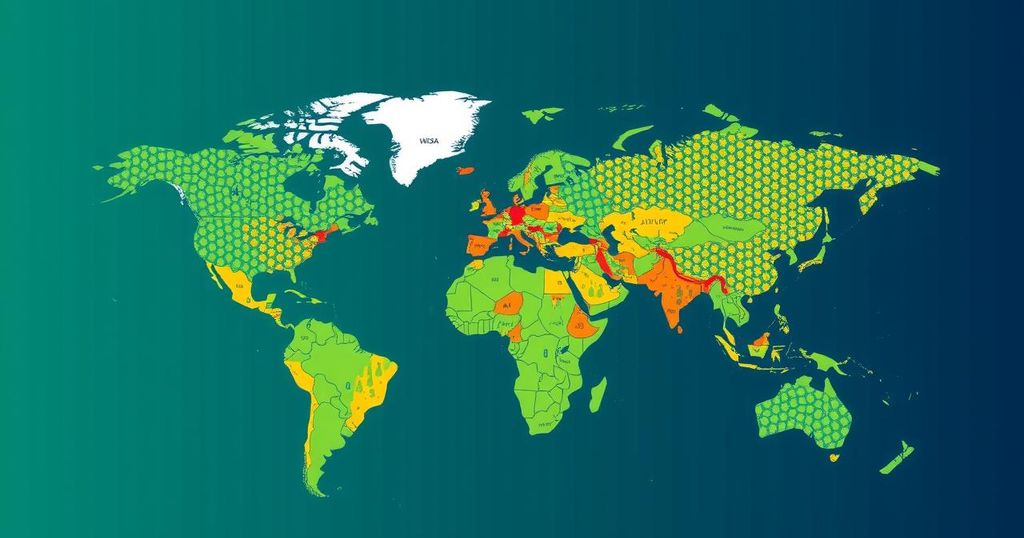COP29, the crucial UN climate conference, will take place in Baku, Azerbaijan, from November 11-22. Key issues include securing funds for developing nations and updating national climate plans, amidst notable absences of influential world leaders. The conference is shadowed by Azerbaijan’s controversial human rights record and its plans to expand fossil fuel production, raising questions about the efficacy of the meeting.
The upcoming COP29, scheduled to take place from November 11 to 22 in Baku, Azerbaijan, marks a significant event in the global climate discourse. Attended by leaders from nations that are parties to the United Nations Framework Convention on Climate Change (UNFCCC), the conference seeks to advance global efforts to combat climate change, despite notable absences of key figures such as US President Joe Biden and China’s Xi Jinping. The primary focus will be to secure financial pledges from wealthier nations to assist developing countries in their climate efforts, amidst growing concerns regarding Azerbaijan’s human rights record and its intentions in the fossil fuel sector. The reallocation of climate finances is anticipated to be a critical aspect of the discussions, with calls for a new target to aid developing nations by 2025, as agreed upon in the Paris Agreement. This year’s conference will also address the need for updated national climate action plans, essential for maintaining momentum in the global fight against climate change. Furthermore, apprehensions arise concerning the host country’s plans for gas production expansion, demonstrating a potential conflict of interests relating to climate commitments. Background on COP29 highlights its role as a pivotal platform for negotiating and implementing climate change strategies. Established under the UNFCCC framework, the Conference of the Parties convenes annually to evaluate progress, set new targets, and encourage participation from developed and developing nations alike. Despite the gathering’s significance and objectives, skepticism looms over its effectiveness this year, especially against the backdrop of global geopolitical tensions and domestic crises among participating countries. In conclusion, COP29 presents an opportunity for international collaboration towards climate action, yet challenges persist, exacerbated by political distractions and the local context of Azerbaijan. The outcomes of this event will be crucial in determining the trajectory of global climate commitments, especially concerning financial aid for vulnerable nations. The stakes are high as experts warn of the escalating consequences of climate change, pressing for immediate and decisive action to secure a sustainable future.
COP29, or the 29th Conference of the Parties, represents a fundamental annual summit focused on climate change policy and agreements. This meeting is part of the broader UN climate negotiations initiated by the UNFCCC, which was ratified by almost 200 countries in 1992 to address issues surrounding climate change. The ongoing sessions provide a diplomatic platform to assess progress and negotiate commitments among nations aimed at limiting global temperature rises and mitigating climate impacts. The current conference’s focus distills down to securing financial support for poorer nations, which are both disproportionately affected by climate change impacts and require assistance in curbing emissions.
In summary, while COP29 is an essential gathering for addressing climate change, various hindrances, including the absence of key leaders and geopolitical distractions, may impede its effectiveness. The conference aims to solidify financial commitments for developing countries and discuss national climate action plans, yet the potential for success is clouded by Azerbaijan’s controversial positions and ongoing global crises. Thus, the effectiveness of COP29 in catalyzing significant climate action remains to be seen.
Original Source: www.bbc.com






